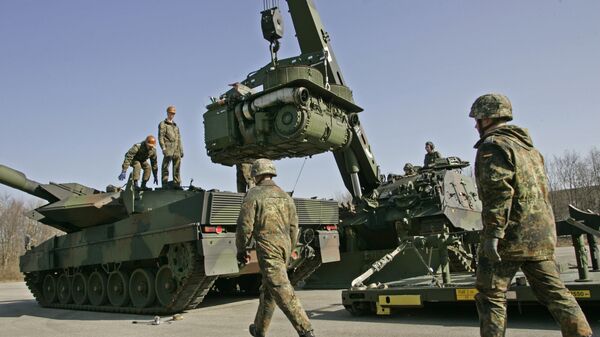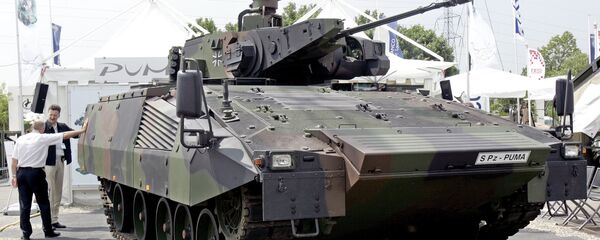"As Chancellor Angela Merkel has finally realized that she has failed, and draws its consequences from this [by deciding not to seek further re-election], one can only hope and wish that the defense minister also comes to this realization that she is not up to her task," Jens Kestner, an AfD member of the Bundestag’s defense committee, told Sputnik.
READ MORE: Scholar on Merkel as Chancellor: There's Speculation on How This Is to Pan Out
According to Kestner, the defense minister failed to bring about a promised turnaround to the armed forces, which have long been facing procurement issues and cost overruns.
"As the numbers and facts prove, the turnaround does not take effect, or one could say that it failed. The secretary of defense had used the then Secretary of State for Armaments Katrin Suder for the purpose of initiating the ’turnaround.' As we all know, Ms. Suder took off her hat [resigned in March 2018] because she, too, had to realize that under the leadership and organization of Ursula von der Leyen, there was no improvement," he pointed out.
Ruediger Lucassen, the defense policy spokesman for the AfD party and a senior member of the Bundestag’s defense committee, similarly blamed the situation on poor management, arguing that the problem with the operational readiness of German armed forces had nothing to do with the quality of the equipment.
"The reason for the above-mentioned challenges cannot be the quality of the industrial production itself. It is furthermore the lack of harmonization of military requirements and planning of procurement budgets and of arms procurement. Shrinking and unpredictable budgets year after year have blocked new programs, prevented service growth, stalled industry initiative. Hence, the operational readiness of the German Armed Forces is currently severely compromised. Due to poor political decisions and mismanagement, our armed forces have been severely neglected for over three decades," Lucassen told Sputnik.
READ MORE: Merkel to Leave 'Huge Vacuum' Created With Her Governing When Resigns — Journo
Lucassen stressed that the AfD party considered an adequate operational readiness of the German armed forces to be "an essential prerequisite for the acceptance of Germany as an equal partner by NATO, the EU and the international community."
"For the AfD, Germany needs military forces whose leadership, strength and equipment are adapted to the requirements of future conflicts, and which comply with the highest international standards. It needs troops which are trained according to the requirements of modern combat, as well as an administration which is oriented towards the welfare of the troops, combined with considerably reduced bureaucracy. The AfD rejects the idea of a combined European military force and subscribes to well-equipped and trained German Armed Forces as the pillar of German sovereignty," he said.
He also stressed the importance of restoring effective defense industry to ensure the country’s independence in terms of key technologies and to preserve jobs, and called for a military budget increase "to a level which is adequate for preserving the security and freedom of Germany and its allies."
The lawmaker's comments follow earlier German media reports, citing the ministry, that out of 97 newly-delivered jets, helicopters and tanks to the Bundeswehr in 2017, only 38 were fully operational, which corresponds to a rate of 39 percent. Meanwhile, the Bundeswehr's goal is to have 70 percent of its weapons systems in operational readiness.
The views and opinions expressed by the speaker do not necessarily reflect those of Sputnik.




